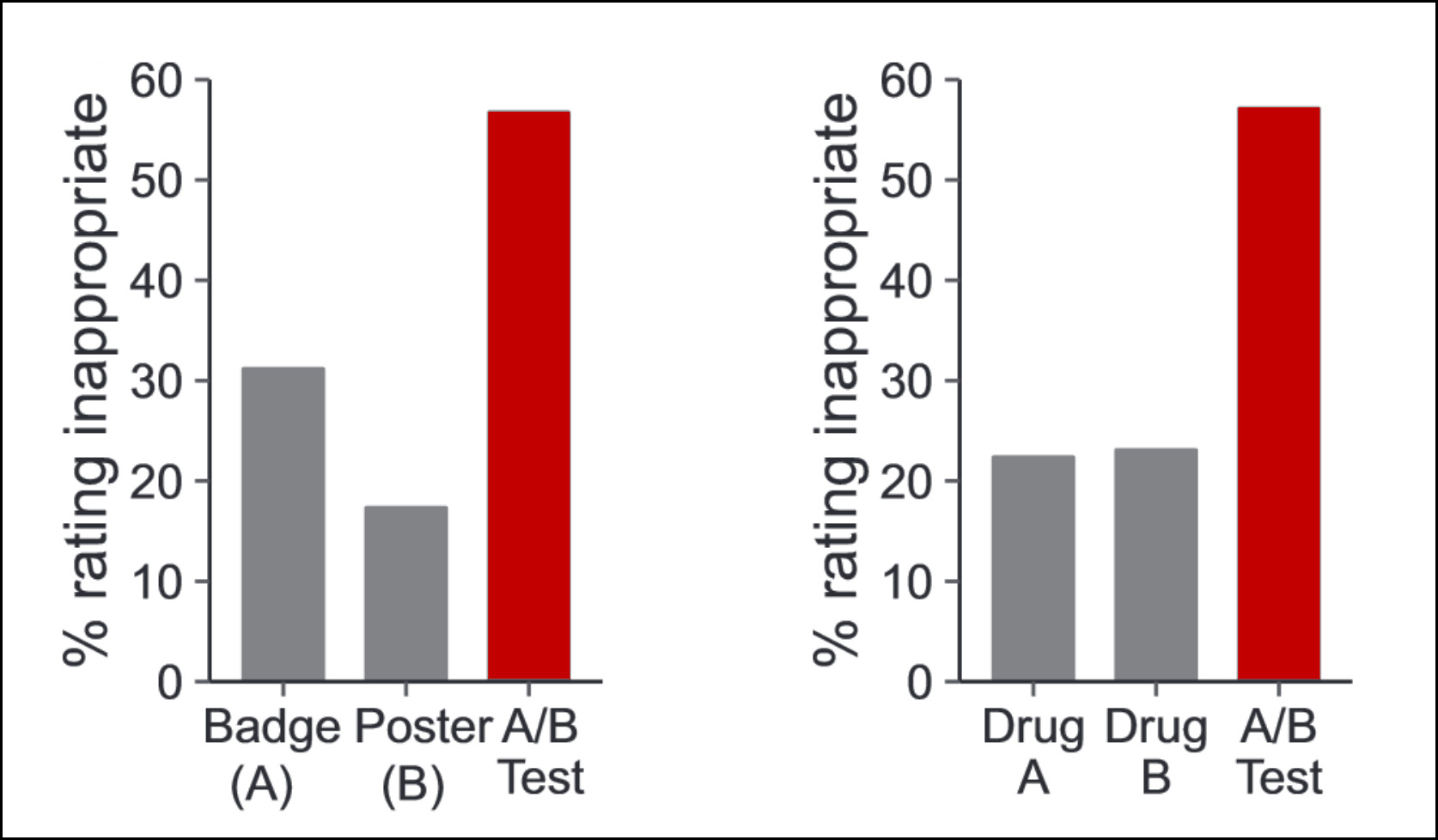Via Alex Tabarrok, here’s a fascinating little study about whether people are comfortable with experimentation. First, a team of seven (!) researchers made up an experiment where hospital patients are randomly assigned to different groups. In one group, some safety procedures are written on a poster in their hospital room. In the other group, the safety procedures are printed on the back of their doctor’s badge. This experiment was then explained to people. About 15 percent thought the poster was a bad idea, while 10 percent thought the badge was a bad idea. But a whopping 50 percent thought that randomly treating the two groups differently was bad.
Fine. Maybe that had to do with opinions about badge vs. poster. But how about two drugs labeled “Drug A” and “Drug B”? This time, small percentages disapproved of using one drug over the other. But once again, more than half disapproved of randomly giving the drugs to different patients to find out which one worked better.

The researchers say that they replicated this result multiple times, and so have other studies:
We find evidence across 16 studies of 5,873 participants from three populations spanning nine domains—from healthcare to autonomous vehicle design to policies to address global poverty—that people frequently rate field experiments designed to establish comparative effectiveness of two policies as inappropriate even when the policies those experiments compare are widely seen as appropriate. This A/B effect remains robust after a variety of procedures to correct for multiple comparisons, including p curve, Bonferroni correction, and hierarchical linear modeling.
Bonferroni correction! I’m sold.
There are various other parts to the paper designed to test whether people were upset about lack of informed consent, didn’t understand the reason for the experiment, and so forth. But the basic result stands regardless: people just don’t like the idea of being experimented on. Someday all these people are going to find out that the drug industry routinely experiments on them not by handing out two different drugs, but by withholding a promising drug entirely from a study group. Boy are they going to be pissed then. Maybe Donald Trump should tweet about this. Can he make the entire Republican Party the party of opposition to scientific testing of new drugs? I wouldn’t put money against it, unfortunately.

















